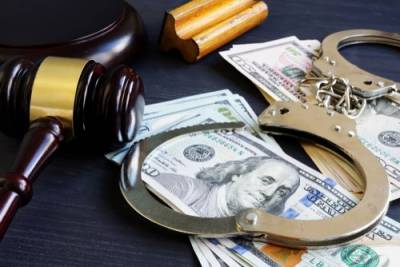Recent Blog Posts
What Types of Bail Bonds Are Available in Texas?
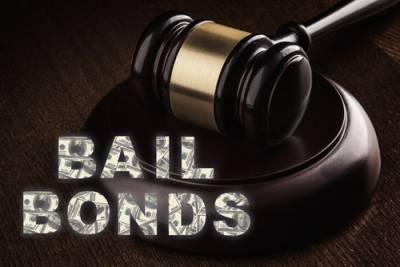 If you have been arrested, understanding the procedures that will be followed and the steps you will need to take to get out of jail can be overwhelming. Most of the time, a certain amount of bail will need to be paid before you can be released. The court will set an amount for bail that will be based on factors such as the severity of the offense, your previous criminal record, and the possibility that you may fail to return to court when required. It is important to understand the different types of bail bonds that will allow you to pay the required amount. A bail bond is a financial agreement between the court and the person posting bail on your behalf. The types of bail bonds that you may be able to use include:
If you have been arrested, understanding the procedures that will be followed and the steps you will need to take to get out of jail can be overwhelming. Most of the time, a certain amount of bail will need to be paid before you can be released. The court will set an amount for bail that will be based on factors such as the severity of the offense, your previous criminal record, and the possibility that you may fail to return to court when required. It is important to understand the different types of bail bonds that will allow you to pay the required amount. A bail bond is a financial agreement between the court and the person posting bail on your behalf. The types of bail bonds that you may be able to use include:
Cash Bonds
A cash bond requires that someone—usually a family member or close friend—pays the full amount of bail as set by the court. This money is held by the court until all of the defendant’s hearings or trials have been completed. Once this happens, the amount will be returned, although fines or fees imposed by the court may be deducted. It is important to note that if someone posts a cash bond on behalf of another person, they may not be able to get their money back if that person fails to appear in court as required.
Is Bail Required for People With Previous Arrests or Convictions?
 When someone is arrested in Texas, they will often be required to post bail in order to be released from jail until their trial. Bail is an amount of money that is paid to the court as a guarantee that the accused will appear at their scheduled court appearances. If the defendant fails to appear, the court can keep the amount of bail that was paid and issue an arrest warrant for the person because of their failure to appear. It is important to understand how the laws in Texas determine when bail is required. When a judge sets an amount of bail, a person can obtain a bail bond that will allow them to be released quickly.
When someone is arrested in Texas, they will often be required to post bail in order to be released from jail until their trial. Bail is an amount of money that is paid to the court as a guarantee that the accused will appear at their scheduled court appearances. If the defendant fails to appear, the court can keep the amount of bail that was paid and issue an arrest warrant for the person because of their failure to appear. It is important to understand how the laws in Texas determine when bail is required. When a judge sets an amount of bail, a person can obtain a bail bond that will allow them to be released quickly.
Texas Laws Affecting Bail
Over the past several years, ongoing debates have taken place surrounding bail for people who have been arrested and charged with crimes. Texas lawmakers have passed laws addressing this issue, and other laws have been proposed. Most recently, a 2021 law required cash bail in certain situations.
Will I Face Bail Restrictions if I Am Arrested for Weapons Charges?
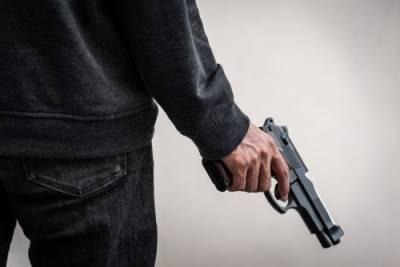
In Texas, many people value their Constitutional rights that allow them to possess and carry firearms. However, there are a variety of situations where people may run afoul of weapons laws, and they may be arrested based on offenses related to the possession or use of guns or other weapons. Being arrested is often a frightening and confusing experience. In addition to addressing criminal charges, people in these situations will also need to determine how they can get released as quickly as possible. They will also need to understand the restrictions that may apply after they get out of jail. The criminal justice system can be complicated to navigate, and many people are unsure of what to expect during the process. Thankfully, options for being released from jail are available, primarily through the use of bail bonds.
What Conditions Can a Judge Put in Place When Setting Bail?

If you have been arrested in Texas, you will usually be required to post bail before you can be released from custody. The amount of bail will depend on the type and seriousness of the charge, as well as other factors, such as your prior criminal history. However, simply posting bail is not always enough. There may also be other conditions that a judge will require you to meet after being released and during your criminal case. In addition to receiving a bail bond that will allow you to get out of jail quickly, you will need to understand the requirements that may apply to you.
Dallas Area DWI Arrests May Increase During the 2022 Holiday Season

Most of the time, the rate of alcohol use increases during the holidays, and this leads in turn to higher rates of drunk driving. People get together for celebrations with family and friends, and these gatherings often involve alcohol. At the same time, the holidays may involve stress or loneliness, and this can also lead to increased substance use. Police officers are aware of these trends, and they will be taking a closer look at drivers who may potentially be under the influence of alcohol, leading to more DWI arrests. Drivers who are arrested and charged with DWI will need to understand how they can get released by obtaining a bail bond.
Frequently Asked Questions About Bail and Bail Bonds in Texas
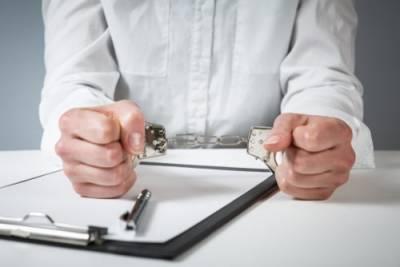
If you have been arrested, you may be wondering how bail works and whether you should get a bail bond. Bail is money that you pay to the court to guarantee that you will appear for your court hearings. If you do not show up for court, the court will keep the bail money. If you do show up at scheduled court dates and meet all requirements during your case, the money will be refunded back to you. However, judges often set bail at high amounts, and if you are unable to pay the full amount, you can work with a bail bondsman who will pay bail to the court on your behalf. In most cases, you will pay 10 percent of the total bail amount to the bail bondsman, which will allow you to be released from custody during your criminal case.
How Does a Judge Decide if a Person Is a Flight Risk When Setting Bail?
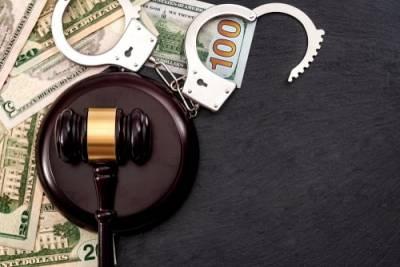
When a person is arrested and charged with a crime, they will need to address multiple legal issues. While it will be important to determine how to defend against criminal charges, in many cases, a person's first concern will be to get released from jail or police custody. To do so, they will usually need to pay a certain amount of bail. The purpose of bail is to ensure that the accused returns for their court date. A judge will set bail based on a number of factors. One of these factors is a flight risk, or the likelihood that the person will skip town before their court date. But how does a judge determine if someone is a flight risk, and how will this affect their decisions regarding bail?
What Are My Options if a Judge Gives Me Excessive Bail?
If you or a loved one have been arrested, you may be wondering what to do if the judge sets bail at an amount that you cannot afford. Fortunately, you have rights under the Eighth Amendment of the United States Constitution, which protects you from having excessive bail set in your case. The Texas Constitution also addresses this issue and prevents judges from setting bail at unreasonably high amounts. While you may be able to fight against excessive bail as a defendant in a criminal case, you will also want to make sure you can be released rather than being held in jail. By securing a bail bond, you can get out of jail and determine your best options for moving forward with your case.
Your Rights Regarding Excessive Bail
The Eighth Amendment and the Texas Constitution Bill of Rights both state that "excessive bail shall not be required" when a person is arrested and charged with a crime. Bail should be no more than is necessary to ensure that the individual appears for their court proceedings. In addition, bail cannot be used to oppress or discriminate against a person, and a person's ability to pay bail may also be considered when determining an appropriate amount.
How Is Bail Set in Cases Involving Assault and Other Violent Crimes?
When a person is arrested on suspicion of a violent crime, they will be taken into custody by police and held in jail. Because these offenses are often considered to be serious, a person may be looking at a long prison sentence if they are convicted. However, the law allows for a person to be released during their criminal case, ensuring that they can continue working and attending to the needs of themselves and their family. To be released, a person will usually need to pay a certain amount of bail. For those who have been arrested for assault or other types of violent criminal offenses, as well as family members or others who may provide assistance in paying bail, it is important to understand the factors that determine the amount of bail that must be paid. Fortunately, by obtaining a bail bond, a person can usually be released quickly, and there are affordable options for paying the amount of bail that is due.
How Parents Can Help a Student Who Has Been Arrested While at College

Going to college is an important step in the life of many young people. In addition to receiving education that will allow them to pursue their chosen career, students will be taking the first steps into adulthood and independence. Unfortunately, this independence can lead to troubling situations. While at college, students may engage in behavior that could potentially lead to being arrested. Dealing with these situations can be difficult for parents, especially if their child is attending college some distance away from their home. By understanding the steps they can take to help their child get released from police custody, parents can be sure they are handling these situations properly.
Criminal Arrests for College Students
There are multiple reasons why a student may be arrested, including but not limited to:
-
Possession of drugs or alcohol - Many students experiment with alcohol and drugs, especially while attending parties or enjoying time with their friends and fellow students. Unfortunately, possession of alcohol before reaching the age of 21 or possession of any controlled substances could lead to serious criminal charges.


